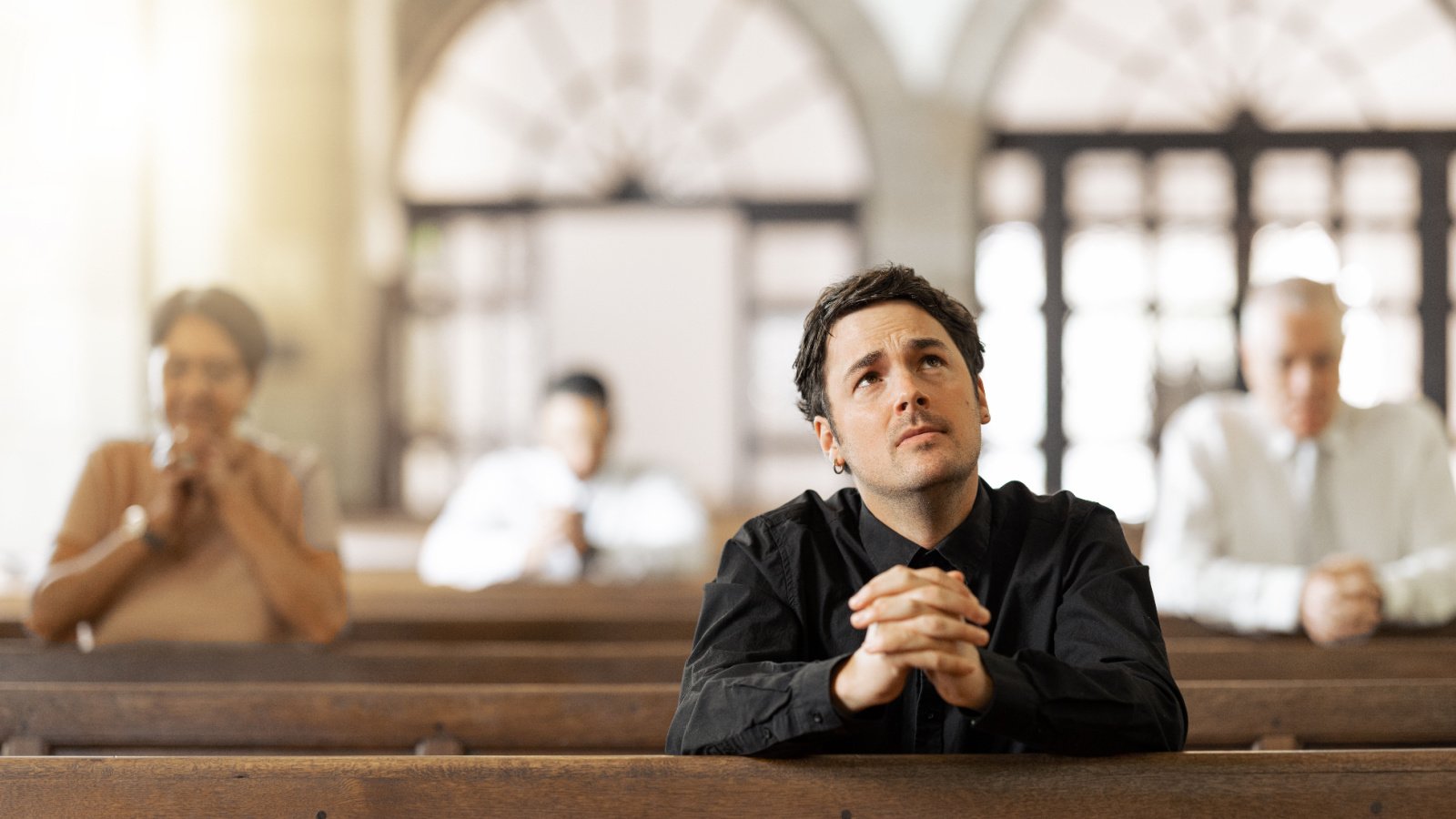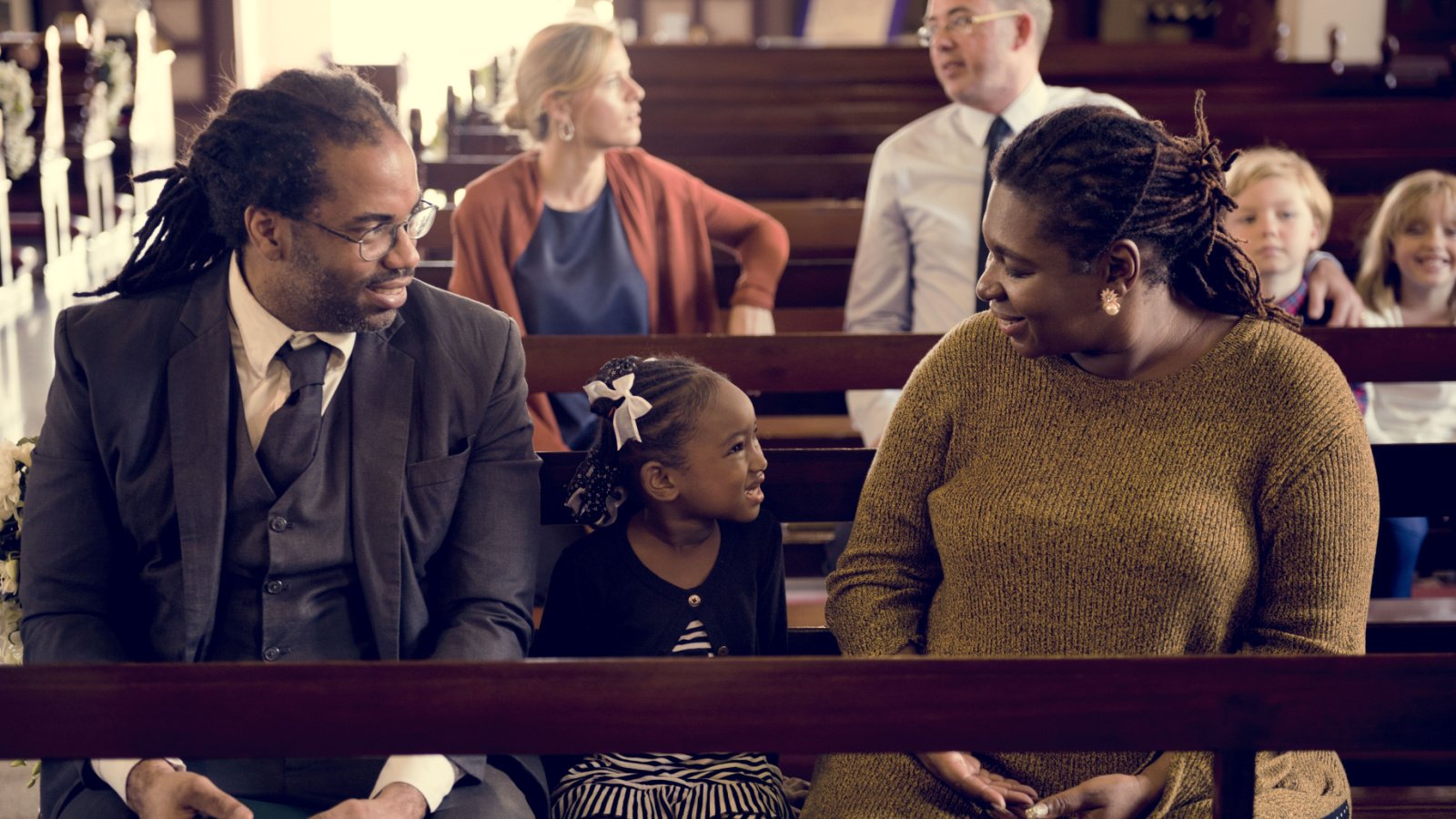Behind the composed expressions of churchgoers lie hidden thoughts and desires. Congregants often harbor personal confessions that never breach the silence of their lips, ranging from doubts about faith to critiques of church practices. Let’s take a peek at the thoughts haunting the minds of the congregation, which might even shock the priest.
Doubting Beliefs

Many wrestle with the fear of expressing doubts about their faith within the sanctuary of the church. They worry about judgment or disillusionment but crave an honest discussion about their uncertainties. This internal struggle often stays silent, overshadowed by the fear of not fitting in with the congregation.
Judging Others

While the church teaches acceptance and love, individuals often catch themselves judging others based on appearance, behavior, or choices. This contradiction between belief and action can cause internal conflict and guilt. Most keep these judgments to themselves, concerned about appearing unchristian.
Skipping Services

There’s a common guilt about skipping church services that few confess openly. Reasons vary from needing personal time to simply disliking the service format, but admitting this can feel like confessing a sin. The pressure to attend regularly can make this confession particularly difficult.
Disagreeing with the Sermon

Disagreements with parts of the sermon or the pastor’s interpretation of scripture are more common than spoken. Congregants often remain silent to avoid conflict or because they feel their dissent isn’t welcome. This silence can stifle personal growth and understanding within the community.
Personal Sins

Confessing personal sins in public at church can be daunting. The fear of being judged or not forgiven makes many prefer silent reflection or private confession despite the catharsis that sharing might bring. The stigma attached to certain sins keeps many lips sealed.
Financial Struggles

Though churches often encourage tithing, those struggling financially may feel ashamed to admit they can’t contribute. They might worry about being seen as less faithful or committed because they aren’t meeting donation expectations.
Criticizing Church Leadership

Criticism towards church leadership is a sensitive topic, with many fearing backlash or alienation for speaking out. Whether it’s disagreeing with decisions, behaviors, or the direction the church is taking, these thoughts are often kept quiet to maintain peace. The hierarchical nature of many churches discourages open dialogue about leadership issues.
Lifestyle Choices

Many churchgoers lead lives or make choices that they fear do not align with their church’s teachings. From cohabitation to lifestyle preferences, the gap between personal choices and church doctrine can be wide. Admitting to these can risk censure or ostracism from the community.
Lack of Spiritual Experience

Some attendees never feel the spiritual or divine presence often spoken about in religious texts and sermons. They might feel deficient or excluded because their personal experience doesn’t mirror what others describe. Keeping these feelings secret prevents feelings of isolation but also perpetuates personal confusion.
Fear of the Afterlife

Despite teachings on the afterlife providing comfort to many, some harbor deep fears about what comes after death. Expressing these fears could contradict the hope that faith is supposed to offer. This internal terror is seldom voiced, trapped by the need to appear steadfast in belief.
Attraction to Someone in the Congregation

Feelings of attraction, especially if they’re considered inappropriate or distracting from spiritual pursuits, can cause significant internal turmoil. Individuals may feel guilty for their feelings, particularly if they conflict with the church’s teachings on relationships and marriage. These emotions are usually kept quiet to avoid scandal or personal shame.
Questioning Church Practices

Questions about the relevance of certain rituals or the interpretation of sacraments are common but often go unspoken. Many fear that questioning these practices might imply a lack of faith or disrespect toward tradition. The culture of reverence around church practices makes these confessions particularly taboo.
Feeling Unfulfilled

Some members might attend church regularly yet feel unfulfilled spiritually or communally. Admitting that the church isn’t meeting their needs can be seen as a failure on their part to engage properly with their faith. Instead, they remain silent, continuing to hope for a change in their feelings.
Envy of Others’ Faith

Envy toward others who seem more spiritually fulfilled or connected can be a difficult confession. This envy can make individuals feel petty or small, especially in a community that values humility and brotherhood. Admitting to these feelings is challenging in a setting that aims to uplift all members equally.
Boredom During Services

Admitting to boredom can seem disrespectful. Many mask their lack of engagement by appearing attentive, hiding their true feelings to conform to expected behaviors. This boredom can lead to disconnection from the messages being shared.
Anger Towards God

Anger towards God is a complex emotion that is often repressed within church walls. Such feelings are viewed as taboo or indicative of weak faith. Admitting to these feelings could provide relief but also risks judgment.
Dislike of Church Activities

Not everyone enjoys church activities or social gatherings, finding them obligatory or uninteresting. Expressing disinterest in these community-building events can make members feel like outsiders. Keeping these opinions private is common to avoid seeming uncooperative.
Secret Support of Controversial Issues

Supporting issues that contradict church teachings, like abortion rights or marriage equality, can place members at odds with their community. The fear of being ostracized for their beliefs keeps many from speaking out, even if they strongly support these issues privately.
Struggling with Prayer

Struggles with prayer, whether in maintaining regular practice or feeling its efficacy, are rarely disclosed. Many fear this might indicate a lack of true faith or spiritual disconnect. Admitting difficulties in prayer is seen as revealing a profound personal failing in faith.
Preference for Another Denomination

Curiosity or preference for other denominations or faith practices is something many ponder but rarely express. The fear of family or community rejection keeps many from exploring these feelings openly.
Feeling Coerced to Attend

Many attend church more out of family or social expectations than personal conviction. Admitting they feel coerced rather than inspired to participate can undermine their relationships and standing in the community.
Wearing a Mask

The metaphorical mask many wear to church, hiding their true selves and struggles, is a heavy burden. The pressure to appear happy and whole can be exhausting, yet the fear of revealing their true struggles is overwhelming. This facade is maintained to avoid judgment and maintain social standing in the community.
Loss of Passion for Ministry

Those involved in church ministries might experience burnout or a loss of passion for their duties. Admitting this loss can feel like a betrayal of their commitments and cause guilt. Keeping these feelings secret prevents open discussions about sustainability.








